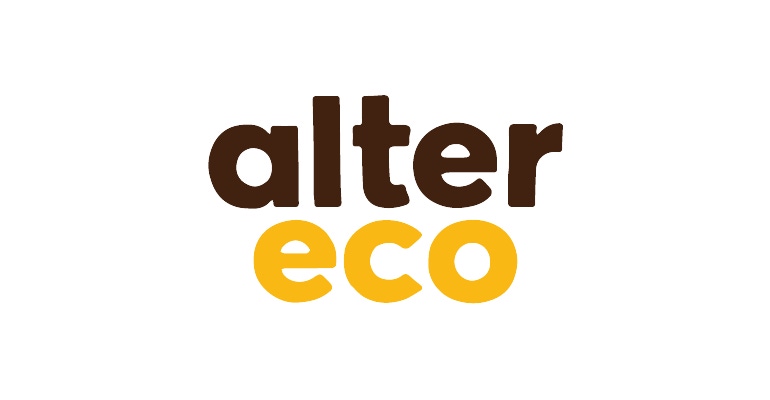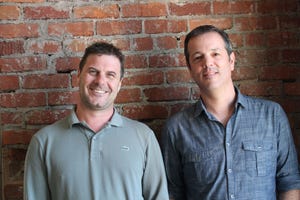The company's initiatives include a scalable agroforestry model that aims to offset 100 percent of carbon emissions within its supply chain–and consumers are taking note.
January 25, 2019

As we  move toward the 2019 National Co+op Grocers Climate Collaborative Awards on Climate Day at Expo West this year, we're talking with the leaders of our 2018 award-winning companies to learn a little bit more about what drives their climate leadership.
move toward the 2019 National Co+op Grocers Climate Collaborative Awards on Climate Day at Expo West this year, we're talking with the leaders of our 2018 award-winning companies to learn a little bit more about what drives their climate leadership.
Our sixth interview is with Edouard Rollet and Mathieu Senard, co-founders of Alter Eco and winners of a 2018 Outstanding Company Award.
Alter Eco received an Outstanding Company Award for its commitment to developing a scalable agroforestry model.
What impact has pursuing agroforestry, or as you call it, “carbon in-setting,” had on the company, internally and externally?
Edouard Rollet: Although my professional background is in business, my co-founders and I have always been activists at heart. At Alter Eco, we’re obsessed with spreading social justice and environmental regeneration, while also setting a high bar for delivering mind-blowingly tasty chocolates made from premium ingredients. This dedication to fair-trade ingredients and building relationships with the farmers we source from has helped us build a well-respected brand.
This respect has ultimately driven sales and helped consumers feel more connected with Alter Eco and the ingredients within the food they’re eating. We believe it is essential that our mission and vision be shared with all of our stakeholders; from investors, farmers, vendors and customers to team members. This transparency ensures that our impact remains focused within our supply chain and partner communities. Our carbon offset program, which we call “in-setting,” was born from the idea that we could offset 100 percent of our carbon emissions within our supply chain through the financing of reforestation in farming communities in the Amazon we source our cacao from. We also love giving our colleagues the opportunity to visit the co-ops for an immersive, educational experience into how the ingredients are harvested and the ongoing developmental programs that promote sustainability. Incorporating both consumers and our team into Alter Eco’s mission has been instrumental for the company’s success and has led to what we call a large, but very tight Alter Eco family!
The ripple effect has extended to some non-farming vendors who have embraced our fair trade, organic and carbon in-setting program, expanding the programs to their organizations and customers, beyond Alter Eco. Being able to share values, passion, and solid, efficient programs within the Alter Eco family at large while creating momentum beyond our organization to our consumers has shown the power of business as a force for good.
Has there been an experience leading this work that stands out to you, or an aspect that makes you particularly proud?
Mathieu Senard: Building Alter Eco has been an incredibly rewarding experience, but I’m particularly proud that we’ve grown a successful brand while operating on our four key pillars of sustainability: choosing clean and delicious ingredients, investing in our farmers as a fair-trade company, regenerating the Earth as a top-ranking B Corporation and eliminating waste by working towards 100 percent compostable packaging. I’m deeply passionate about sustainable initiatives, so being able to grow a company that’s so strongly rooted in its commitment to environmental sustainability initiatives, like protecting the soil and ecosystems, using fair-trade ingredients and building relationships with the farmers we source from, is incredibly impactful and rewarding for me.
Have you encountered or had to overcome any challenges in your efforts to support broader engagement on climate across your value chain?
Edouard Rollet: While we’ve certainly faced our fair share of challenges along the way, we received immediate support from retail stores, independent retailers and organic, specialty food chains from the start. They embraced our story and appreciated that we were one of the first few Fair Trade Certified chocolate companies. Above all, they were amazed that a small company could produce such premium, quality chocolate sourced from such remote and marginalized farmer groups.
In addition, we’ve facilitated trips with team members from larger retail chains, like Whole Foods Market, and food co-ops represented by National Co+op Grocers, to visit our farming communities and spend time with the families so they can understand who profits when they purchase our products. They stayed in the farming communities for a few days, participated in harvests and reforestation efforts, and came back from these trips transformed. The concepts we are trying to address, such as climate change, soil health, trade imbalance, and global poverty are complex and sometimes hard to grasp. It is part of our mission as a brand, and as a responsible business, to do our best to help people learn and understand these crucial challenges.
What inspires you to pursue climate leadership? Was there a defining moment, experience or realization you can share that really crystalized this direction for you?
Edouard Rollet: Mathieu and I have been dedicated to pushing the envelope around climate change and social issues since the very beginning and a big part of that is inspiring other leaders in the natural foods industry to do the same.
Prior to starting Alter Eco, we both experienced profit-driven multinationals and on-the-ground NGOs first-hand. After seeing the challenges in humanitarian aid efforts, we have become pioneers in social entrepreneurialism, using our business to fight for economic and social justice. We’ve baked this dedication into Alter Eco’s core values and it’s the main reason why we source our ingredients from farmer-owned coops that uphold sustainable agricultural practices.
What keeps us going is to see the virtuous circle that one can set in motion once we replace extractive techniques by a regenerative approach. With fair trade and organic farming, there is no question that the farmers take much better care of their land and crops and that this results in ingredients of much higher quality. With reforestation and agroforestry, not only are we able to create additional revenue for the farming communities (tree planting and maintenance, ability to sell fruits and other additional crops), but there are also a lot of positive side effects from these programs: substantial increase in crop yield, protection from flood and other natural disasters, etc.
What is your vision for the future of climate action in the natural foods industry?
Mathieu Senard: We hope our sustainability initiatives and success at Alter Eco inspires others to take action and incorporate more sustainable practices into their own companies. We’re incredibly passionate about leaving the world better than we found it, and Alter Eco has provided us with a platform for fulfilling this mission. We want to inspire other brands in the natural foods industry to realize the impact they can have on the industry. People are becoming increasingly tuned into the ingredients within their products, as well as where companies are sourcing these ingredients from. Conscious foodies are increasingly using their purchasing power to support brands that offer clean ingredient labels and those that support the environment, rather than deplete it.
Currently, along with other natural food brands, we are pioneering a new certification called Regenerative Organic Certification, which is built on current organic and fair-trade standards and adding strict requirements around soil health, animal welfare and social fairness. This is not just another certification, but a “super certification” that we think addresses today’s challenges around farming and climate change. The pilot program is currently underway, and we are eager to see this certification extend to the natural food industry in the next few years.
What advice would you give companies who hope to have a similar positive impact?
Edouard Rollet: First and foremost, I would encourage brands to emphasize transparency at the root of their mission. Finding ways to give consumers an inside look at your efforts to make a meaningful change offers them an opportunity to connect with your company on a deeper level. When people are aligning with the mission, not just the product, that’s when you have widespread success.

About the Author(s)
You May Also Like




